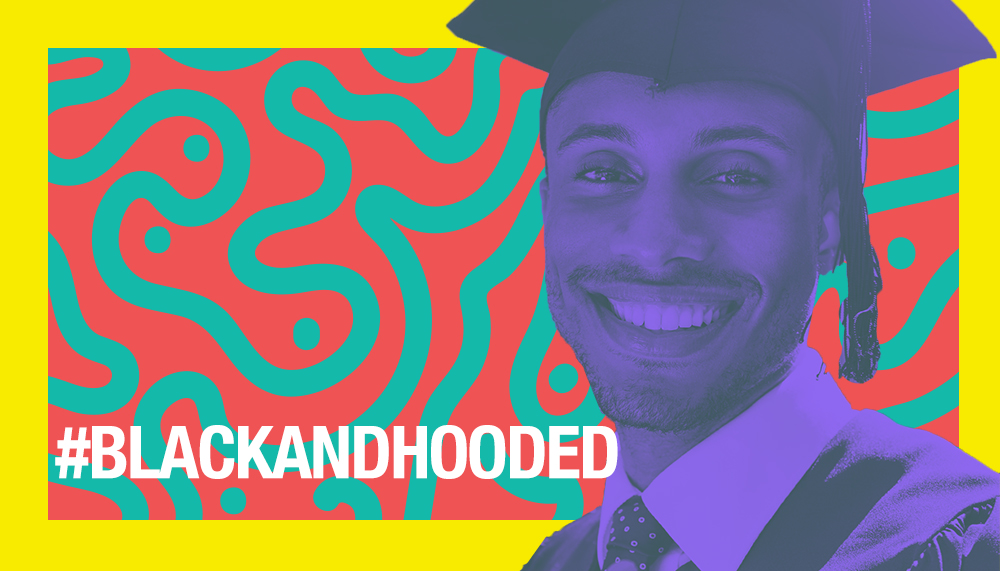
Source: Getty/iOne Creative / iOne Creative
As per a study conducted by the National Center for Educational Statistics, Black academics only made up 13.6% of graduates with masters degrees in 2015.
Let that sink in.
That’s why Anthony Wright, 23, and Brian Allen, 24, created the hashtag #BlackandHooded to highlight the achievements of Black folks graduating. Both men graduate this spring with masters degrees from Indiana University and Columbia University, respectfully. The two go back to middle school, when they met at a pre-college program in Wisconsin.
Wright was thinking about his graduation this Spring and realized the magnitude of what it meant for him to be a Black man getting a master’s degree. He wanted to share what that success looked like on social media through a campaign called “Black Men in Hoods.” Allen said he liked the idea, but wanted to highlight the experiences of women and non-binary folks as well, which is how they settled on #BlackandHooded.
Wright and Allen aimed to flip the idea of what Blackness looked like on a mainstream level and contrast it with images that they saw in their daily lives at school. While they are using this platform to uplift the excellence they’re capable of, they also know that this privilege does not set them above any other Black person in the eyes of society.
“When I have this hoodie on, you’re not going to see my master’s degree — people see what they want to see,” Wright told CASSIUS. “But when I put on my [master’s] hood for my graduation, it contradicts the negative connotations that would typically define me.”
We can wear hoodies, and be seen as thugs, but we’re still achieving academically and in our communities.
Another hope they have for the campaign is to inspire young Black students to pursue higher education. According to the National Center for Educational Statistics, only 21.4 percent of black students who began their undergraduate degrees in 2008 graduated. Wright said through his work with undergraduate Black students, many of them had never seen master’s and PhD students who looked like them before. Seeing someone who looked like them was empowering, particularly when the numbers show that the amount of people of color drops every level degree you go up in.
“I think with the shifting political climate that we see with the new Trump administration and with the implementation of Betsy DeVos in the education realm, Black folks need to be seen doing really great things,” Allen agrees. “#BlackandHooded is a really great way to form that because everyone’s on social media in some capacity.”
Wright recently created a #BlackandHooded website for all the photos to live, aggregating everything from Twitter, Facebook, and Instagram to one website. They’ve also noticed people using #BrownandHooded or #QueerandHooded hashtags.
“I thought it was really powerful because even though folks might not identify as Black or Afro-descendant, they’re still finding ways to insert themselves into the conversation, which is very important,” Allen said. “I’m interested in seeing how many other variations of ‘and Hooded’ come out of this.”
















